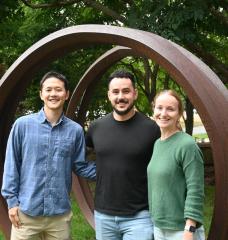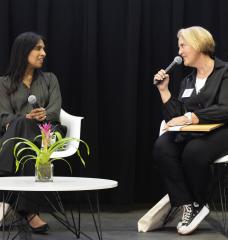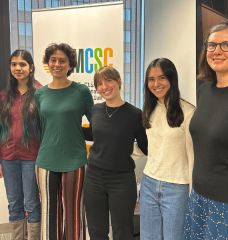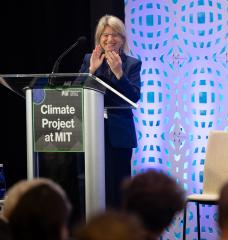
MIT Climate Nucleus
Committee Meeting
Friday, October 28, 2022
Held Virtually
MINUTES
Staff update
The Nucleus committee staff began the meeting with an update on staffing for the climate policy and climate education working groups. MIT has hired a candidate for the position of Climate Policy and Education Specialist, to begin in November 2022.
Education working group
The Nucleus then heard from David Hsu, a co-chair of the Climate Education Working Group, about the group’s progress since it began meeting in the spring of 2022. Over the course of discussion held by the working group through the summer, three areas of focus emerged:
- What are the climate learning outcomes that every MIT student should achieve?
- How can we enable experiential learning opportunities for MIT students?
- How do we engage alumni learners and learners beyond MIT?
The working group is preparing a brief white paper that will provide ideas for both top-down (e.g., Institute-level) and bottom-up approaches to address these three focus areas. The working group also discussed the idea that there are two climate change concepts that are difficult to learn and teach: First, there’s the “complex and total nature” of climate change – not just the physical sciences and technological issues, but also the social, political, and cultural issues. Second, that despite this complexity, there are places where students can take action and advance climate solutions.
Bottom-up ideas for climate education could include things like piloting new classes and teaching collaborations, building on work done by the Environmental Solutions Initiative and others; and providing funding to fill gaps in the availability of climate-related experiential learning opportunities. Top-down ideas could include things like new faculty cluster hires or a “wicked problems practicum” for first or second year undergraduates.
Following the presentation, comments from Nucleus members included:
- One member said that undergraduates should have sustained and continued experiences with climate education from the moment they arrive on campus until the moment they graduated. The working group and the Nucleus should work with the Office of the First Year on a climate pre-orientation program (FPOP) for every first year student.
- One member suggested the possibility of assembling a list of fundamental climate learning outcomes that every MIT graduate should have, such as an understanding of the planetary energy balance and the factors that drive it. Although changing the General Institute Requirements has proven difficult, we should be able to articulate what we think every student ought to know regarding climate. Another member noted that the energy minor lays out what each student who completes the minor should know. This might be a model for a broader effort.
- One member noted that while it’s difficult to alter the Sloan MBA requirements, there has been success encouraging leaders of core MBA classes to include climate or sustainability cases, assignments, lectures, etc. Another member noted that the Environmental Solutions Initiative has also had success infusing climate topics into the curriculum, including, for example, introducing the energy balance of the earth into a physics class. But this is a piecemeal approach, rather than a comprehensive one that would reach every MIT undergraduate.
Recommendations for the MIT president-elect
Next, the Nucleus discussed what advice the Nucleus, in conjunction with the climate working groups and the Climate Steering Committee, could provide to MIT’s president-elect.
- One member noted the importance of conveying to the president-elect all of the climate-related activities already happening at MIT and how best to support them, rather than focusing solely on the creation of something new.
- Another member suggested a “field trip,” such as a walking tour of the MIT campus focused on campus climate risks and resilience.
- One member articulated the importance of having a clear, concise, impactful recommendation for an idea that is actionable if resources become available.
- One member suggested that a recommendation to the president-elect could focus on an idea for a place to build solutions and figure out how to get them deployed in the real world quickly.
- One member noted that climate change is a concern for a large proportion of the MIT faculty; the Nucleus should also ensure that the president-elect hears from faculty members who are not part of climate programs per se.
- Finally, one member suggested a spring climate forum, led by the new president, to bring together all of the climate work happening at MIT across research, education, innovation, outreach, and campus operations.
Next steps
- The next Nucleus meeting will be Wednesday, November 30.






